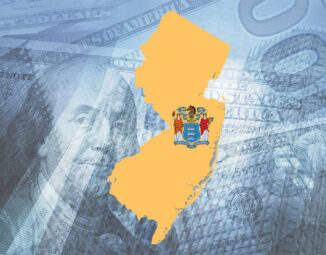COVID-19 And Your Commercial Lease Agreement
Landlords, Now Is the Time to Mitigate Your Damages
Essentially every sector of the economy is seeing effects caused by the daily developments of the COVID-19 pandemic. Amongst the uncertainty of today, it is important not to lose sight of what effect this pandemic may have on your real estate investment. Now is the time to re-examine the provisions of your lease agreement(s) to help you prepare and evaluate your rights, remedies and obligations and of course, to otherwise be ready for what the future might bring.
FORCE MAJEURE AND YOUR LEASE
The lease clause that is currently getting the most attention is the force majeure provision. This provision was discussed in an earlier Obermayer Alert regarding contracts in general. A force majeure clause in a commercial lease excuses a party for delay in performing an obligation under the lease as a direct result of an event: (a) which was unforeseeable and (b) not within the control of the party seeking the protection of the provision. Some force majeure clauses state exactly that and accordingly, COVID-19 would neatly fit into the force majeure definition. Other force majeure clauses are more specific and list the actual events that would be considered force majeure such as strikes, war, floods, earthquakes, tornados and other acts of God. Clauses with more detail might include the inability to obtain materials or adequate labor as a result of a government regulation or shutdown; this again, would apply to the current pandemic. If the force majeure provision in your lease is limited, it is necessary to ascertain whether COVID-19 will excuse your delay or lack of performance. If you do not have a force majeure clause in your lease, you would want to rely upon a common law defense such as impossibility or impracticability of performance. It should be noted, that force majeure clauses most likely do not excuse monetary obligations under a lease such as the late payment of rent by the tenant.
Often force majeure clauses have a notice requirement. In order to benefit from the force majeure provision, you may have only a certain period of time to give notice to the tenant once the force majeure event occurs. Be sure to check your lease for this as well.
WORK LETTERS AND BUILD OUT PROVISIONS
What do you do as a landlord, if you are required to perform tenant improvements, but construction is at a standstill, materials are not available, inspections are not taking place and permits are not being issued? This is a huge problem facing commercial landlords in light of COVID-19. Many leases allow the tenant a rent abatement or even the right to terminate the lease if the landlord’s construction is not completed by a certain date. There are instances where the tenant needs to move into its new space by a date certain or the tenant will be in holdover under its current lease. Are you liable for the consequential damages of your tenant’s holdover at its current space? It is necessary to read the force majeure provision of your work letter to determine how the date of substantial completion, the work that the tenant may be performing and the rent commencement date will be affected by a COVID-19 delay. Once your exposure is determined, and preferably before any deadlines are missed, it is recommended that you communicate with the tenant in an effort to mitigate your damages.
DO YOU HAVE A MORTGAGE ON YOUR PROPERTY?
What do you do if a tenant is late with its rent due to financial hardship as a result of COVID-19? What if you, as the property owner, become unable to make a mortgage payment on your property due to a reduction in your rental stream? How is your loan affected if your construction is delayed? What if you have a construction-to-permanent mortgage on your property? What happens if you suddenly have more vacancies than you had ever expected? If you do have a mortgage on your property, it is best practice to read over your mortgage contract to see what remedies you might have, whether you have to comply with any timing deadlines and most certainly, whether your mortgage documents have a force majeure provision. Although you will doubtfully be excused from any financial obligations under such force majeure clause, many lenders have been giving 90-day moratoriums to its debtors due to the current pandemic.
CHECK YOUR LEASE’S INSURANCE PROVISION
You should further review the insurance provision of your lease. Is either party required to carry business interruption insurance? You should check both your policy and your tenant’s to determine if COVID-19 would cause the benefits of the insurance to kick in?
SHOPPING CENTER LEASES
Retail leases often contain co-tenancy clauses whereby the landlord “guarantees” that the anchor tenant will remain open or that the vacancy rate will not dip below a certain percentage. If due to COVID-19, the vacancy rate drops below the required threshold, you might be in default under the lease. Are there specific remedies in the lease available to your tenant should your vacancy rate become too high? Does your force majeure clause help you in this situation?
BE PREPARED
COVID-19 is bound to have a lingering effect on the real estate industry and the way that leases are structured and negotiated going forward. All pending and future leases will become more customized with extra attention being paid to government regulations, timing, reduced budgets and of course force majeure language. As more hardships arise as a result of COVID-19, both landlords and tenants might consider amending their current leases as a compromised effort to stay afloat.
The information contained in this publication should not be construed as legal or medical advice, is not a substitute for legal counsel or medical consultation, and should not be relied on as such.



